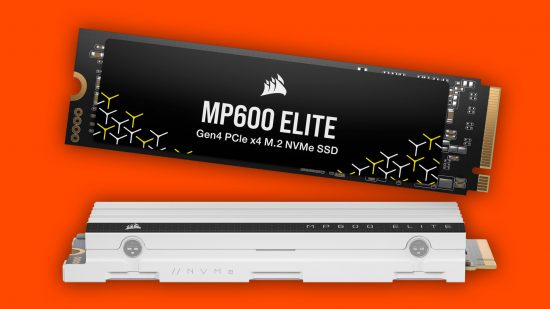Corsair has just unveiled the MP600 Elite SSD, a new PCIe 4.0 M.2 drive that can hit up to 7,000MB/s read speed and is available in a special PS5-compatible version for a no-stress PS5 storage upgrade.
The new Corsair drive looking to earn a place on our best SSD for gaming guide is available immediately and comes in 1TB and 2TB versions, with a 4TB option arriving in April 2024.
All the different versions of the drive boast the same read speed of 7,000MB/s but have slight variances in write speed. The 2TB model tops out at 6,500MB/s while the 1TB version hits 6,200MB/s. Those figures overall are below the very fastest PCIe 5.0 drives but are still double what older PCIe 3.0 drives can achieve.
When it comes to random read and write speeds, the drives hit 1M IOPs (QD32) read and up to 1.2M IOPs for the 2TB and 1M IOPs for the 1TB drive. Figures aren’t yet available for the 4TB variant.
Versions with and without a heatsink are available, with the heatsink version costing a mere $5 more. Meanwhile, the PS5-optimized version is the same price as the conventional heatsink models but has a slightly smaller PS5-compatible heatsink.
The write rating for the drives starts at 600TBW for the 1TB model rising to 1200TBW for the 2TB version. Those are both typical figures for those sizes of drive when using the triple-level cell (TLC) NAND these drives are using – as opposed to quad-level (QLC) or two-level (MLC).
Pricing starts at $90 for the non-heatsink 1TB drive, rising to $95 for the heatsink and PS5 versions, while the 2TB model starts at $165 and rises to $170. Those are overly cheap prices but are competitive with other higher-spec PCIe SSDs.
For more of our current top choices of SSD, check out our best SSD guide, which includes budget, mid-range, and high-end options.
